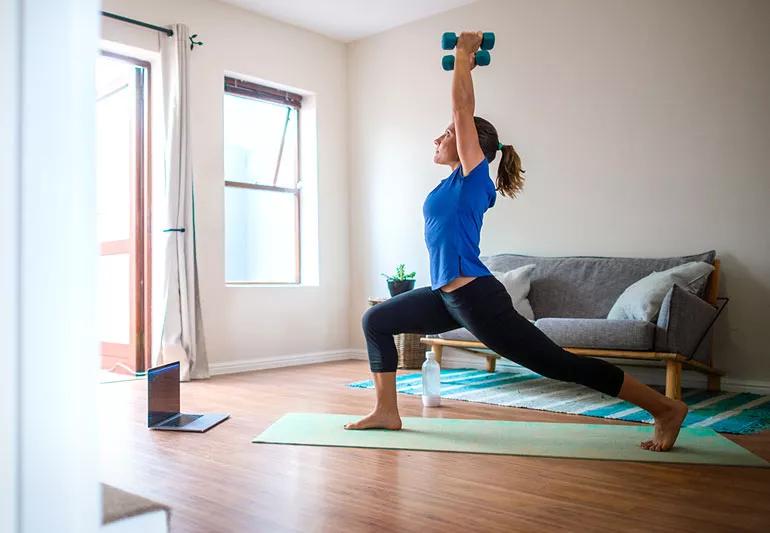Get the short answer from a pulmonologist

Image content: This image is available to view online.
View image online (https://assets.clevelandclinic.org/transform/4d606f65-caef-4464-b66f-e6d298e22d6c/wmnExerciseHome-1223998256_770x533_jpg)
woman exercising at home yoga
Q: Will working out before or after we get vaccinated for COVID-19 make the vaccine less effective?
Advertisement
Cleveland Clinic is a non-profit academic medical center. Advertising on our site helps support our mission. We do not endorse non-Cleveland Clinic products or services. Policy
A: The level of concern is low. People who are experiencing more side effects from the vaccines tend to be younger, so they’re people who are more likely to exercise regularly. Many were worried about how long the side effects would last. But in reality, we know that when it comes to this population, the side effects of the vaccines are typically very mild and last about a day or so.
In general, it’s hard to predict how someone will respond to the vaccines. What we’ve seen so far is that younger and healthier people have experienced vigorous immune responses to them. As for now, no evidence suggests that if you exercise before or after getting vaccinated for COVID-19 it will make the vaccine less effective.
Some evidence shows that people who maintain healthy lifestyles and exercise regularly seem to have enhanced responses to vaccines. Their bodies create more antibodies compared to people who are not as healthy or in good shape. So, there’s some proof that by having a healthy lifestyle and exercising regularly, you might boost your immune response to the vaccine.
As for exercising after getting the vaccine, I recommend listening to your body. You might find that after you get your shot, it could be a good day to just rest or do something less strenuous like just taking a walk. Recovery is part of exercising, too. It’s not a bad thing to have a lighter workout day.
Advertisement
You may be able to exercise as you normally do after your vaccination but if you don’t feel up to it, don’t push yourself.
— Pulmonologist Humberto Choi, MD
Advertisement

Sign up for our Health Essentials emails for expert guidance on nutrition, fitness, sleep, skin care and more.
Learn more about our editorial process.
Advertisement
Chilblain-like skin lesions and rashes are mild (and rare) complications of many viral infections, not just COVID-19
Most can return to work or school when they’re symptom-free for 24 hours
Covering your mouth when you cough and staying home when you’re sick are a couple ways to help keep yourself and others COVID-free
This vital nutrient supports your health, but its role in COVID-19 prevention and treatment isn’t proven
Studies have shown promising results, but additional research is needed
Infection and inflammation can cause you to lose your voice and have other voice changes until you’re fully healed
A COVID-19 infection can bring on depression or anxiety months after physical symptoms go away
Just like the flu, COVID-19 continues to evolve every year with new and smarter variants
Prioritize your health by managing stress, strengthening your social connections and getting quality sleep
Bolsters, blankets, pillows and blocks can offer extra support, stability and comfort
Allergies, postnasal drip, asthma or reflux could be to blame for a cough that won’t quit